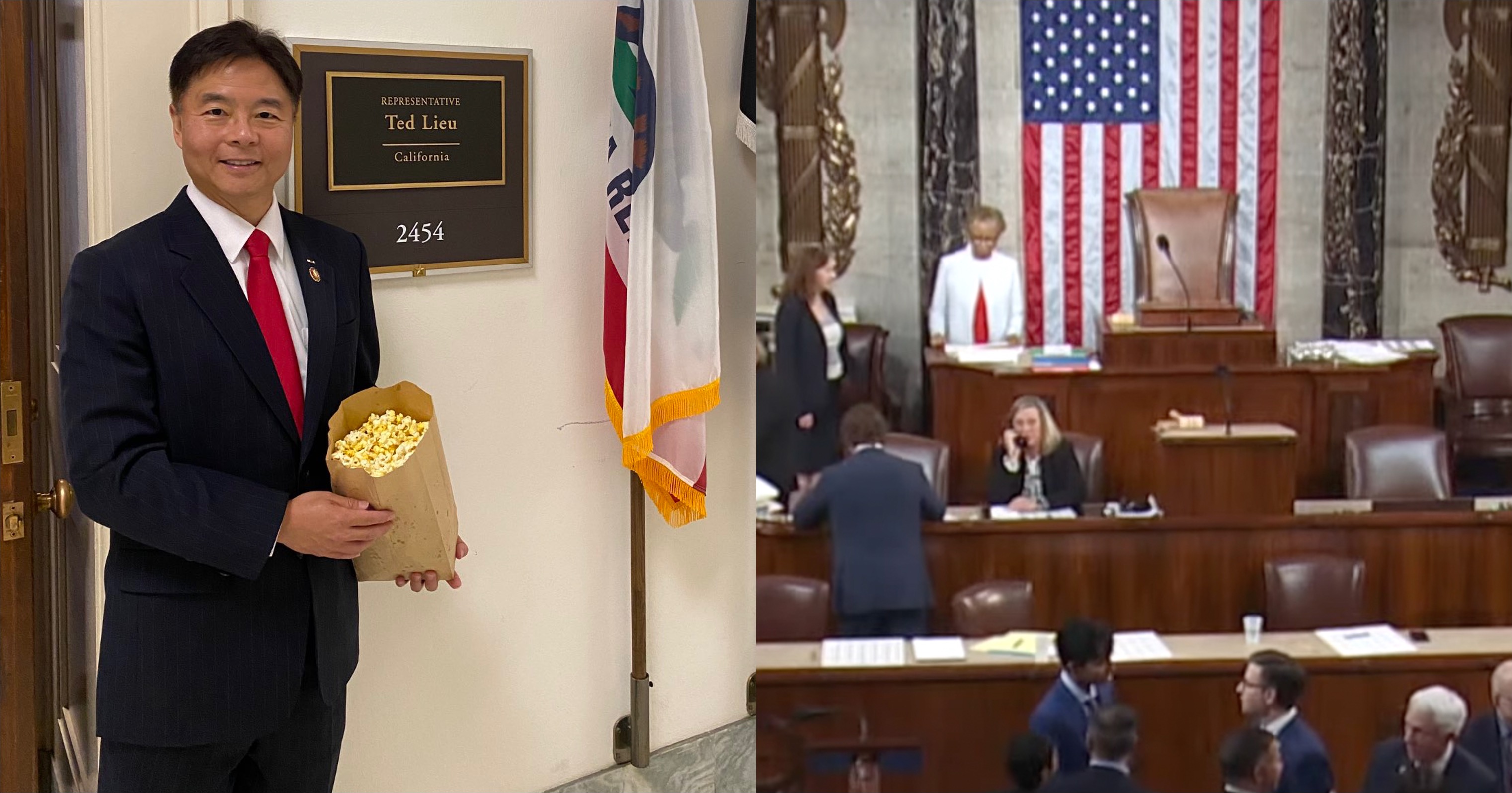Follow us on Telegram for the latest updates: https://t.me/mothershipsg
For the first time since 1923, the U.S. House of Representatives failed to elect a Speaker on the first ballot.
Until a Speaker is chosen, the House cannot convene to pass legislation. The next vote is scheduled for 12pm on Jan. 4 (midnight Jan. 5, Singapore time).
Aftermath of midterms
Following the midterm elections of Nov. 20, the Republican party secured a victory in the House by electing more Representatives than their opponents, the Democratic party.
The House is the U.S.'s lower chamber of Congress, similar to Singapore's Parliament.
As the total number of Representatives is 435, a candidate needs a majority vote of at least 218 to become the Speaker.
As the Republicans won 222 seats in the election, they could afford four defectors and still elect a Speaker.
What happened?
However, on the morning of Jan. 4 (Singapore time), a small group of hardline right-wing Republican representatives known as the Freedom Caucus rebelled and refused to vote for Kevin McCarthy, the leader of the House Republicans and the man expected to replace Nancy Pelosi as Speaker.
McCarthy suffered 19 defections on the first two ballots, more than enough to keep him from the Speaker's chair. In another blow to the Californian Republican, the Democrats unanimously rallied around their leader, Hakeem Jeffries of New York.
Jeffries received 213 votes from all the Democrats, more than McCarthy's 203, although neither tally was enough to get over the line. Meanwhile, the defecting Republicans chose to vote for Jim Jordan of Ohio instead.
A third vote saw yet another Republican switch his support to Jordan, leaving McCarthy with just 202 votes.
Why the defections?
The Republican rebels have different motives for bucking McCarthy, although they hail from the hard right wing of the party.
Some are fervent supporters of former president Donald Trump, who voted against certifying the results of the 2020 presidential election, where Trump was defeated by Joe Biden.
Others are described as "ideological hard-liners", who want changes to the rules that would make it easier for Representatives to block legislation.
And still, others are newly-voted members from deeply conservative districts, whose constituents are supposedly opposed to McCarthy.
In the weeks leading up to the vote, McCarthy made numerous concessions to the demands of his party. For instance, he agreed to implement a new rule allowing as few as five Representatives to call for a vote on toppling the Speaker any time they desire.
However, the defectors want McCarthy to commit to a rule that allows just one Representative the power to eject the Speaker at any time.
What happens next?
The New York Times reported that McCarthy has vowed not to give up, and will continue to stand for election as Speaker.
If every Representative is assembled for the vote, a candidate must have 218 votes to be elected. However, if not everyone is present (e.g. only 400 out of 435 turn up), then the threshold for victory goes down accordingly.
There is a possibility that the Democrats may be persuaded to throw their support behind a compromise candidate, allowing a new Republican to be elected.
But in a press conference, Jeffries said it was not the job of his party to save the Republicans from their own "dysfunction".
The opposite could also happen, with some moderate Republicans lending their support to Jeffries. However, it is unlikely.
Unless McCarthy can break the deadlock, the U.S. will not have a Speaker for the time being. Meanwhile, Democrats may need more popcorn.
About to go to the House Floor. pic.twitter.com/81QVxmbHBb
— Ted Lieu (@tedlieu) January 3, 2023
Top image from Ted Lieu's Twitter and C-SPAN YouTube.
If you like what you read, follow us on Facebook, Instagram, Twitter and Telegram to get the latest updates.
